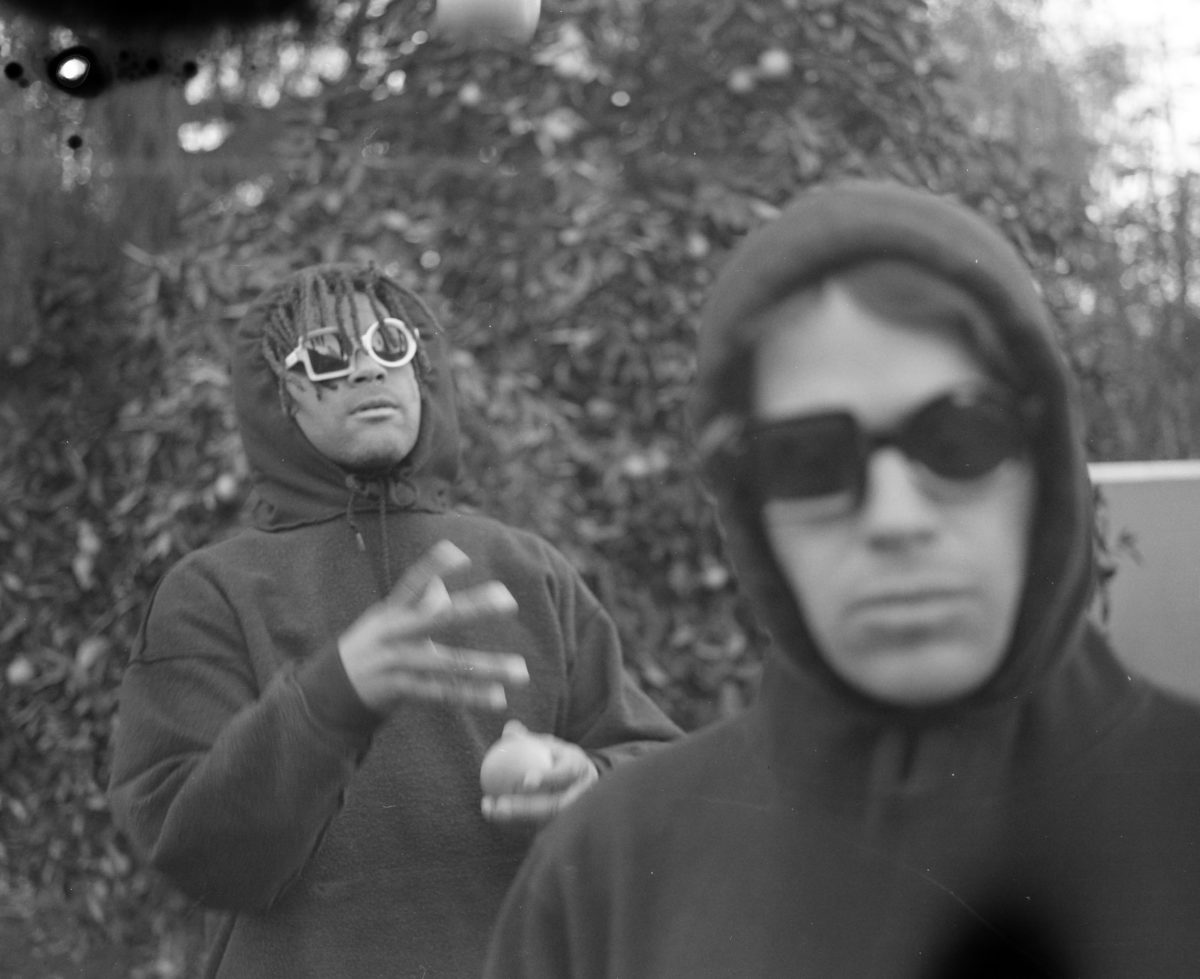LPR & World Music Institute Present
Oct
03
with special guests The Jack Moves
Wed October 3rd, 2018
8:00PM
Littlefield
Minimum Age: 18+
Doors Open: 7:00PM
Show Time: 8:00PM
Event Ticket: $25
Day of Show: $30
This is a general admission event at Littlefield: 635 Sackett St, Brooklyn, NY 11217
Discovered in 2006 thanks to Jupiter’s Dance, a documentary about the new music scene in Kinshasa, charismatic band leader Jupiter Bokondji represents the innovative scene of street musicians in Kinshasa. Blending Afropop, traditional Congolese rhythms, funk, and rock with often topical, socially conscious lyrics, Bokondji is advancing a rich, multicultural style. Powered by his group Okwess International, with drummer Montana of Staff Benda Bilili, he released his latest album Kin Sonic (produced by Marc-Antoine Moreau, whose credits include Amadou & Mariam and Songhoy Blues), which unveils a largely hidden heritage even as it addresses issues confronting societies all across the globe.
Jupiter & Okwess

Discovered in 2006 thanks to Jupiter’s Dance, a documentary about the new music scene in Kinshasa, charismatic band leader Jupiter Bokondji represents the innovative scene of street musicians in Kinshasa. Blending Afropop, traditional Congolese rhythms, funk, and rock with often topical, socially conscious lyrics, Bokondji is advancing a rich, multicultural style. Born in Kinshasa, he began drumming as a boy, helping his grandmother, a traditional healer, at ceremonies and funerals. In 1974, his diplomat father was posted to East Berlin, where Jupiter discovered Rock music and became inspired by the apparent complicity between Congolese traditions and Western music.
He returned to Kinshasa, convinced that music could be a unifying force and determined to create his own mode of musical expression.
Gathered around Jupiter are the Okwess faithful: Montana (of Staff Benda Bilili) on drums and Yendé on bass, guitarists Eric and Richard and the singer Blaise. Their new album, Kin Sonic (produced by Marc-Antoine Moreau, whose credits include Amadou & Mariam and Songhoy Blues), unveils a largely hidden heritage even as it metaphorically addresses issues confronting societies all across the globe.
special guests The Jack Moves

The Jack Moves on Facebook | The Jack Moves on Instagram
From the crummy and rude glory hole bandits of Newark’s Penn Station to the cherry blossom lovers found just north of the city, there’s a thread that stitches these disparate elements. Kids run across the boulevard as the soundtrack wafts over the streets. The few bucks forked over to the pregnant lady down on her luck could be the same notes used to cop a flavorful bouquet for a romantic conquest. The triggerman’s itchy index is used both to spill rivals and thrill lovers. The Jack Moves are what this sounds like on wax.
Painted by a sound reflective of the city’s seaside soul, skate-funk punks and the Newark Jack Swing played from transistor radios and boom boxes placed on competitive window sills, The Jack Moves (Zee Desmondes, Teddy Powell) narrative is artfully carried out on the band’s sophomore offering and Everloving debut, Free Money.
As with most art created in earnest, the band’s music has the ability to occupy spaces beyond its origin city. A vehicle spanning coasts and subcultures, perhaps unintended. Out west, it wouldn’t be surprising to hear some Jack Moves ballad billowing from a lowrider during a backseat make-out session. Meanwhile in Japan, their hit song was hawking Big Macs™ at Mickey Deeznuts. The band’s self-titled Wax Poetics debut drew comparisons to “Off the Wall” era Michael Jackson, The Escorts and the Whatnauts. The Jack Moves then hit the road playing supporting dates, traveling the world. From Brixton Academy and Red Rocks Amphitheater, to the strange familiarity of the cherry blossomed avenues of Osaka and Tokyo.
And so it should come as something of a surprise that The Jack Moves would record most of their latest material on the fringe of Los Angeles, placing their intrinsically east coast essence into the hands of idiot-shaman and occasional platinum record producer, JP Plunier. But way out west the music was unshackled and this new sound was soul, untethered from the chains of the past.
Free Money twists and grooves, chugs and grinds, and sways – a modern, smashed-up hybrid devoid of nostalgic put-ons. Strangely enough this album could be the bastard child of The Stones “Some Girls” and Drake’s “More Life”. Underneath Powell’s sepia toned soul rhythms, Desmondes’ honeyed vocals sing incantations and love letters to unbelievers (“Penn Station”), lovers (“Sunshine,” “Red Lights”), ancient beings (“Three The Hard Way”) and addicts — both digital and pharmaceutical (“Wantin’ You,” “Money Clouds”) — all searching for something: a fix, a fuck, a dollar, a safe place, a friend, a home. Swipe left. Swipe right. Into a tangled void of fear and longing.
These are the songs young beat-choppers will be sampling in the post-millennial era.

